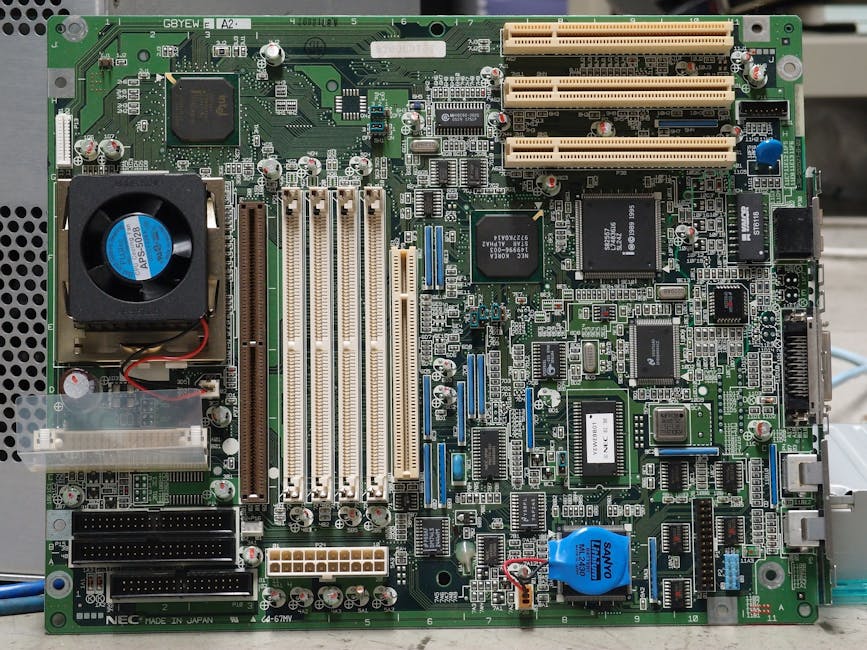Unlock encrypted content
Please enter your SSCE key to initiate on-the-fly decryption.
Decryption key: (Click cancel if you don't have the key)
Copied link to clipboard.
This feature is unavailable for free accounts. Upgrade now and enjoy all Premium benefits.
Go Premium!
This feature is unavailable for free accounts. Upgrade now and enjoy all Premium benefits.
Go Premium!
Please open this page in browser ( Google Chrome or Safari ) to use this feature.
Open In Browser
Data Privacy: Exploring the Future of Quantum Data Storage and Human-Machine Interface
Random related video for this blog.
Copied share link to clipboard.
With the increasing reliance on technology, protecting sensitive information has become more challenging than ever. However, technological advancements are paving the way for innovative solutions to address these concerns. From advanced downloading tools to data encryption at rest and in transit, the possibilities for safeguarding data are expanding. In this article, we will delve into the world of data privacy, exploring topics such as quantum data storage, human-machine interface, and advanced weaponry. We will also discuss concepts like mind uploading, cloud file synchronization, and audio streaming, shedding light on the future of data privacy.
The Future of Data Storage: Quantum Data Storage
One of the most promising technological advancements in data storage is quantum data storage. Traditional storage methods rely on binary code, which consists of bits represented by either a 0 or 1. However, quantum data storage operates on the principles of quantum mechanics, utilizing quantum bits or qubits. Unlike classical bits, qubits can exist in multiple states simultaneously, allowing for exponential data storage capabilities. The potential of quantum data storage is vast. With its ability to store and process massive amounts of information simultaneously, it could revolutionize various industries. For instance, in healthcare, quantum data storage could enable the analysis of vast amounts of medical data in real-time, leading to more accurate diagnoses and personalized treatments. In finance, quantum data storage could enhance security measures, making it nearly impossible for hackers to breach sensitive financial information. While quantum data storage is still in its early stages of development, researchers and scientists are making significant strides in this field. As technology continues to advance, we can expect quantum data storage to become more accessible and commercially viable, transforming the way we store and protect data.Enhancing User Experience: Human-Machine Interface
Advancements in human-machine interface (HMI) technology are reshaping theway we interact with our devices. HMI refers to the point of interaction between humans and machines, encompassing technologies such as voice recognition, gesture control, and brain-computer interfaces. These technologies aim to bridge the gap between humans and machines, making interactions more intuitive and seamless. Voice recognition, for example, has gained significant popularity with the rise of virtual assistants like Siri and Alexa. Users can now perform various tasks by simply speaking commands to their devices. This technology not only enhances convenience but also offers a hands-free solution, making it particularly useful in scenarios where manual interaction is challenging or unsafe. Gesture control is another exciting development in HMI. With the help of cameras and sensors, devices can now interpret hand movements and gestures, allowing users to interact with their devices without physical contact. This technology has applications in various fields, from gaming and entertainment to healthcare and industrial settings. Brain-computer interfaces (BCIs) take HMI to a whole new level by allowing direct communication between the brain and external devices. BCIs have the potential to revolutionize the lives of individuals with disabilities, enabling them to control prosthetic limbs or interact with computers using their thoughts. While still in the early stages of development, BCIs hold great promise for the future of HMI.
Securing Data: Encryption at Rest and in Transit
As data becomes increasingly valuable, ensuring its security is paramount. Data encryption plays a crucial role in safeguarding sensitive information, both at rest and in transit. Encryption involves encoding data in such a way that it can only be accessed or deciphered by authorized parties with the corresponding decryption key. Data encryption at rest refers to the encryption of data when it is stored in storage devices, such as hard drives or servers. This ensures that even if the physical storage medium is compromised, the data remains protected and inaccessible to unauthorized individuals. Encryption algorithms, such as AES (Advanced Encryption Standard), are commonly used to secure data at rest. Encryption in transit, on the other hand, focuses on protecting data as it travels between devices or networks. This is particularly important when transmitting sensitive information over the internet. Secure protocols such as SSL/TLS (Secure Sockets Layer/Transport Layer Security) are employed to establish encrypted connections, preventing eavesdropping or tampering with the data in transit. Implementing robust encryption measures is crucial for maintaining data privacy. It provides an additional layer of protection against unauthorized access and ensures that sensitive information remains secure, even in the event of a breach.Advanced Weaponry and Data Privacy Concerns
While technological advancements bring numerous benefits, they also raise concerns about the potential misuse of advanced weaponry. In an increasingly interconnected world, cyber warfare has become a real threat, with state-sponsored hackers and cybercriminals targeting critical infrastructure and sensitive information. The integration of advanced technologies, such as artificial intelligence and machine learning, into weaponry systems presents both opportunities and challenges. On one hand, these technologies can enhance accuracy, efficiency, and decision-making capabilities in military operations. On the other hand, they also raise ethical and legal questions regarding the use of autonomous weapons and the potential for human rights abuses. Protecting data privacy in the context of advanced weaponry is crucial. As governments and defense organizations develop and deploy these technologies, it is essential to establish robust security measures to prevent unauthorized access and ensure that sensitive information remains confidential. Encryption and secure communication protocols play a vital role in safeguarding data privacy in military operations.The Future of Data Privacy: Mind Uploading and Cloud File Synchronization
Looking ahead, the concept of mind uploading and cloud file synchronization holds immense potential for data privacy. Mind uploading refers to the hypothetical process of transferring the contents of a human brain, including memories and consciousness, into a digital format. While still in the realm of science fiction, researchers are actively exploring the possibilities of mind uploading, raising questions about the privacy and security of digitized human consciousness. Cloud file synchronization, on the other hand, offers a practical solution for data privacy in the digital era. With the ability to synchronize files across multiple devices and platforms, cloud file synchronization provides convenience and accessibility while maintaining data security. By encrypting data both at rest and in transit, cloud storage providers like FileLu ensure that users' files remain protected and confidential. In conclusion, data privacy is a pressing concern in today's technology-driven world. From quantum data storage to human-machine interface advancements, the future holds promising solutions to address these concerns. By leveraging technological advancements, implementing robust encryption measures, and considering the ethical implications of advanced weaponry, we can pave the way for a future where data privacy is safeguarded. As we navigate this ever-evolving landscape, it is crucial to prioritize data privacy and adopt secure practices to protect sensitive information.By Amelia Isabella
Email: [email protected]
Related
Bioprinting, 5G Technology, and Advanced Encryption Algorithms: Revolutionizing Data Storage...
July 28, 2023
Read More
Autonomous Driving, Advanced Encryption Algorithms, and the Future of Data...
July 28, 2023
Read More
Intuitive File Collaboration Interfaces: Revolutionizing the Way We Work and...
July 28, 2023
Read More
Efficient File Storage on Private Cloud: Secure, Collaborative, and Redundant
July 28, 2023
Read More
Highly Available Cloud Infrastructure: Ensuring Security and Privacy in the...
July 28, 2023
Read More
Digital Transformation: The Power of FileLu in Cross-Device File Synchronization...
July 28, 2023
Read More
Music Streaming, Brain-Computer Interface, and the Future of Work: Exploring...
July 28, 2023
Read More
Efficient File Management and Cognitive Computing Storage: Revolutionizing Data Handling
July 28, 2023
Read More
Advanced File Transfer Tools and Cloud Storage: Revolutionizing Data Management
July 28, 2023
Read More
Introducing FileLu: Cutting-Edge Innovations in Flexible File Sharing and Storage
July 28, 2023
Read More
Popular
Latest
The Future of Digital Transformation: Exploring Smart Homes, Efficient File...
November 30, 2025
Read More
Exploring the Benefits of Cloud Storage and Innovative Technologies in...
November 26, 2025
Read More
The Future of Technology: Exploring Biohacking, Space Tourism, and Digital...
November 23, 2025
Read More
The Future of File Sharing: Streamlined Workflows for Photographers and...
November 19, 2025
Read More
Exploring the Intersection of Technology: From Cybersecurity to Augmented Reality...
November 16, 2025
Read More
The Future of File Management: Embracing Edge Computing and Efficient...
November 12, 2025
Read More
The Future of File Sharing: Exploring User-Friendly Solutions and Data...
November 5, 2025
Read More
The Future of Cloud Storage: How FileLu Empowers Creative Professionals...
November 2, 2025
Read More
The Future of Autonomous Technologies: Innovations in Robotics, File Sharing,...
October 29, 2025
Read More
Emerging Technologies Revolutionizing File Management: From Li-Fi to Robust Collaboration...
October 26, 2025
Read More
Emerging Technologies: Exploring the Impact of File Access Auditing, Genetic...
October 19, 2025
Read More
The Future of Data Storage: Exploring Advanced Encryption, Mobile Integration,...
October 5, 2025
Read More
Exploring the Future of Data Management: Security, Efficiency, and Cognitive...
September 28, 2025
Read More
Revolutionizing Data Management: Innovations in Storage, Security, and Sustainable Technology.
September 24, 2025
Read More
















